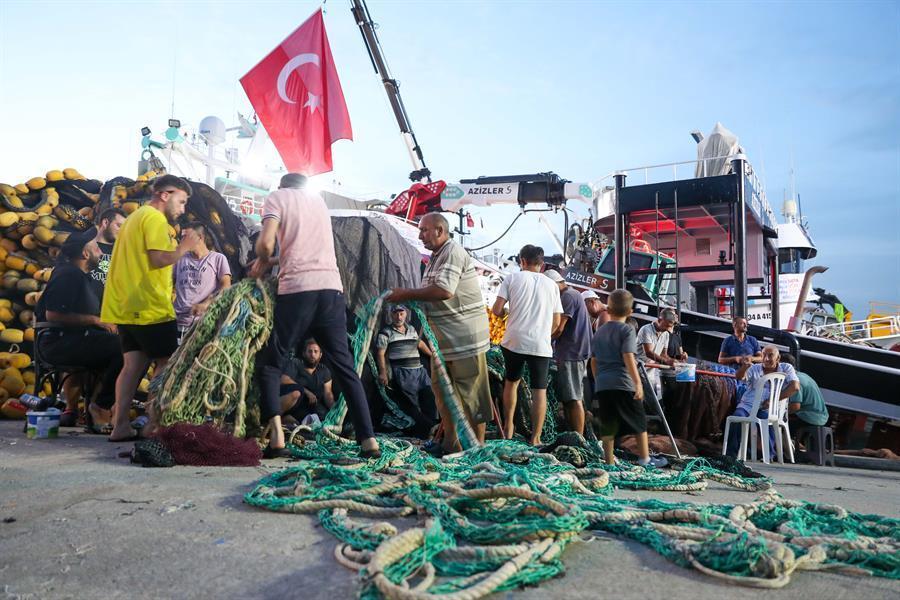
Following the end of a five-month ban, the fishing season has kicked off in Türkiye, with experts foreseeing plenty of bonito in the Black Sea.
Fishermen in the Black Sea ports, where nearly 75 percent of the fisheries in the country are located, completed all their preparations yesterday and set out to sea as of midnight, calling out “Vira Bismillah,” meaning “raising the anchor in the name of God.”
A fishing ban is imposed every year between April 15 - Sept. 1 to preserve fish eggs and ensure sustainable fish farming.
Experts and sector representatives are hopeful for a bountiful fishing season.
“We will probably experience a real abundance of bonito after many years,” said Erdoğan Kartal, the head of the aquaculture cooperatives association in Istanbul, adding that this process may take a long time as extreme weathers cause fish such as bonito to be drawn to deep and cool areas.
Warning that the same may be experienced in anchovy, Kartal said, “We will have an idea about the situation of all fish in October. The increase in the cost of fishing, especially in fuel prices, will unfortunately affect fish prices.”
Among the fish that started to be sold at the marketplace, a pair of bonito costs 120 Turkish Liras, while one has to spend 90 liras for a bluefish. A case of tabby, horse mackerel and anchovy is sold for 150, 600 and 700 liras, respectively.
Besides, Saadet Karakulak, a professor from Istanbul University, stated that scientists have received the first signs that bonito will be abundant.
Pointing to a recent regulation announced by the Agriculture and Forestry Ministry, Karakulak said it would be beneficial to eradicate the problem of ghost nets and prevent poaching
According to the regulation, fishermen who are engaged in commercial fishing in the seas are required to attach QR code tags to all their net materials.
With the end of the fishing ban, fishermen now are obliged to attach QR code tags, which should also contain personal information, to their nets as the new season starts.
“On finding a stray net on the surface without a QR code tag, we will be able to conclude that illegal fishing was conducted. We will remove the fishing gear from the waters,” said Altuğ Atalay, the head of the ministry’s Fisheries Department.
Among the most demanded fish from the industrial fisheries based in the Black Sea in Türkiye, which harbors around 16,000 licensed fishing boats in the seas and 3,000 in the inland waters, are anchovy, bluefish, horse mackerel, bonito and sardine.